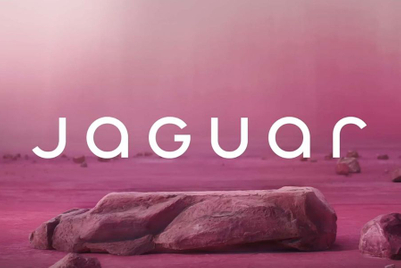
| PARTNER CONTENT |
While companies have become more diverse, more work needs to be done to achieve diversity at the leadership level. In APAC specifically, women are in 27% of senior management roles, compared to 30% in Europe and 38% in Africa.
Do women really make better leaders?
Yet, there is always the argument: shouldn’t leadership be judged on leadership alone - instead of through gendered lens?
Preetha Athrey, Head of Marketing, India, Twitter agrees that while that is true in an ‘ideal world’, the reason why we are talking about this is because “there is underrepresentation of women in the leadership.”
She says that women bring a lot of skill sets and perspectives to the table.
“We go through a lot to get to where we are. We have to manage ambiguity, we need to multi-task - keeping in mind we might have additional family responsibilities. In a sense, it’s not entirely a level playing field. But these experiences help us to be more compassionate, resilient and bring a certain level of self-awareness and emotional attunement to the table.”
Visa’s APAC head of marketing Danielle Jin concurs, “Leadership in the business context is not gender defined in my mind. As a mother of three and a career woman, I found motherhood really trained me well on multitasking and prioritisation. It also taught me to be a better listener and to be more empathetic to others.
At the end of the day, it is about achieving more diverse leadership teams
“Within marketing, diverse thinking is critical and female leaders provide distinct perspectives,” Samsung’s CMO Stephanie Choi. “They can analyze problems holistically and understand the unique way brands drive human connections. This enables them to challenge the status quo and not only create new approaches, but improve existing initiatives.”
The need for an empathetic and diverse leadership has risen to the forefront during a time when so many have moved to remote work. When a majority of the communication is done across the telephone, it’s important for leaders and managers to read the room and to really understand where that person is coming from.
Calling out unconscious biases
While it is easier to call out obvious forms of discrimmination, there is no playbook for female leaders navigating unconscious biases. It gets even trickier if you operate in multiple markets - all with their own cultural nuances.
“In the Asian culture, especially in more patriarchal cultures like Japan and Korea, stereotypes are still pervasive,” HP’s CMO, Greater Asia, Siew Ting Foo notes. “You are a mom, hence you can’t climb the corporate ladder. If you are too driven, then you are labelled as too aggressive. Whereas, if you are a male, it is okay and acceptable. Females can’t be vulnerable, and vulnerability is a sign of weakness versus a sign of confidence”
It might also be the reason why gender disparity gets more serious as one moves up the ladder.
“There have often been situations where we, as women, get asked about our family life, maternity, motherhood etc impacting our productivity? The concerns are never stated outright, but you know they’re always being taken into consideration,” says Athrey.
For her, it’s important that the leadership takes the lead in breaking these stereotypes.
“We need to encourage women to come back from a break and make them feel welcomed. We also need to place our trust in them, support and help them grow. As a woman leader, that is the kind of leadership I believe in”, says Athrey.
Busting leadership stereotypes
Female leaders are also busting the myth that leaders need to ‘act or look a certain way’.
When people talk about leadership traits, they tend to go for adjectives like self-confidence, assertiveness and taking charge.
As Choi notes, “there are certain preconceived ideas of what makes someone a "leader" – their character traits, personalities and even their appearance. Even though we make concerted efforts to see past these stereotypes, they still affect us unconsciously.”
Jin adds, “the stereotype biases not only exist with others but also within ourselves. I remembered earlier on how I wanted to model my style after male leaders as they represented the ‘norm’ in the workplace,” she says.
An overemphasis on certain qualities can lead one to neglect other qualities - the courage to be vulnerable being a case in point.
“I use ‘vulnerability’ as a core leadership quality or strength to lead the team,” Foo notes. “Brene Brown – the author of Power of Vulnerability, talks about vulnerability as a leadership strength vs weakness.
Perhaps Jin sums it up the best, “One can be polite, soft-spoken and assertive at the same time. One can be kind, relatable yet a fast decision maker. When we lead in our own unique way and be proud of it, we help others to appreciate above and beyond the stereotypes.



.jpg&h=334&w=500&q=100&v=20250320&c=1)

.jpg&h=334&w=500&q=100&v=20250320&c=1)
.jpg&h=334&w=500&q=100&v=20250320&c=1)
.jpeg&h=334&w=500&q=100&v=20250320&c=1)

.jpg&h=334&w=500&q=100&v=20250320&c=1)
.jpg&h=334&w=500&q=100&v=20250320&c=1)

%2c+Silas+Lewis-Meilus+(Haleon)%2c+Yves+Briantais+(Colgate-Palmolive)%2c+Melissa+Henson+(Manulife+PH).png&h=268&w=401&q=100&v=20250320&c=1)





.jpg&h=268&w=401&q=100&v=20250320&c=1)
